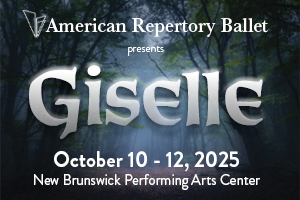
Respecting the Ritual
by Nadia Ureña
Is anyone there?
Schreiben the Conjurer (Daniel Schriver) asks from offstage. His voice comes as a sharp break from the preshow in which a lone shamisen player (Geoff Gersh) donning a red oni mask strummed reverently.
Is anyone there? He asks again. A few of us grunt meekly and someone whispers an affirmative. The only light on the stage comes from sixteen candles standing upright on a wooden altar stage-left. My suspicion that the dimly lit space is meant to represent a Japanese-style office is confirmed when warm light floods the room revealing a wooden desk and chairs, a bookcase holding a set of ritual scrolls and a black and white tatami screen. The screen doors suddenly open to reveal our guide: Schreiben. His neat black suit reads as an invitation to a night of magic.
In Kaidan: An Evening of 100 Spirits, a two-hour show written by Dwight Sora, Schreiben and his guide Abe-san (Mark Tan) employ a captivating combination of magic, dance, theatre, and music to lead the audience through a Hyaku-Monogatari Kaidanki, the Japanese pastime of telling ghost stories that potentially originates in the Heian-era. Each story, told simply through dialogue, is initiated by one of the characters opening a corresponding scroll.
During the third ritual, Schireben pulls out a slightly bent red paper parasol. In the midst of describing how artisans craft parasols and their function, he is suddenly unable to control it and tumbles across the room as if hurled by gusts of wind. Abe-san, witnessing this abrupt change, seizes the parasol from Schrieben’s hands and hurriedly contains it in a red bag.
On the surface, Schreiben presents himself as an all-knowing ambassador for Japan. He brags about his travels, asserts his claim on Japanese culture over the audience through storytelling, and clumsily conflates the Hyaku-Monogatari Kaidanki with western magic. At one point, he congratulates us for our ability to receive Japanese mythos without even having to leave the continent. He is also white, western, and has visited Japan only briefly––all facts he claims in dialogue.
Schreiben is arrogant, but I feel that reading of his character is superficial; rather the point is that he’s arrogant. This is consistently illuminated by his juxtaposition with Abe-san, his Japanese teacher who comes from a long line of mediums and serves as Schreiben’s constant fact-checker. When Abe-san asks Schreiben where he obtained the scrolls, Schreiben reveals that he stole them but intended to return them after completing the ritual. When Abe-san criticizes Schreiben for initiating a Hyaku-Monogatari Kaidanki without fully knowing what it is, Schireiben is confronted by his own naivety.
Kaidan is an honest critique of the western desire to showcase cultures without deeply understanding and respecting them, and explores the consequences and harm that such practices bring to the cultures they seek to represent.
Kaidan: Night of 100 Spirits, Schreiben the Conjurer & Dwight Sora, Plays and Players Mainstage, September 5-7.
Homepage and Article Page Image Description: Against a black background, Schreiben wearing a black suit stands partially obscured by the vibrant red parasol he is holding.
By Nadia Ureña
September 13, 2025









